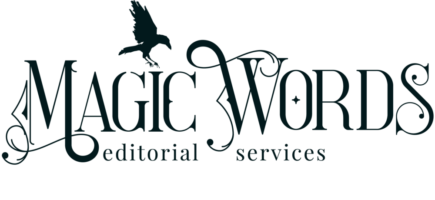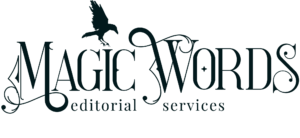
Are You Afraid an Editor Will Steal Your Work? Don’t Be.
I want a guarantee you won’t steal my work.
This was the closing line of a prospective client’s email I recently received. While the message was brusque (and kind of demanding), it’s not the first time an author has led with a similar request in an application for editing—the opening salvo in what should, and can, be an ongoing and intimate relationship with a highly skilled professional.
I always find such requests puzzling. And I almost always turn down prospects who make them (more on that in a minute).
I do understand the anxiety; if you spend any time on social media, you’ve probably seen authors reporting (maybe true, maybe not) they’ve had their “book ripped off” or their “work stolen and published by someone else.” It does happen, but it’s extremely rare and extremely unlikely an average indie author will have that experience.
And yet the fear and paranoia persists.
So today I want to bring facts and logic to the party to help calm those fears, especially where it concerns sending a full manuscript to an editor for evaluation before working with them.
Let’s start with copyright law and how it protects you from potential theft.
Ideas can’t be copyrighted
First, a reality check: there is no way under current United States copyright law to put a cage around an idea. It is highly improbable you can pursue successful legal action against someone for taking an idea from your manuscript draft and developing it into a published book.That, sadly, is a fact, but I don’t mention it to make you more afraid of getting ripped off. Even if someone does steal your idea—they are NOT YOU. No idea thief would ever be able to execute the idea exactly like you would, with your unique flair or use of language.
The energy you expend worrying about protecting the idea behind your story is wasted. There’s not much you can do about that, so focus on what you can protect: the actual work.
Your work is copyrighted the minute it’s written
The second you type a word into a document, it’s protected by U.S. copyright law. There’s no need to publish it, or register it with the U.S. Copyright Office, or place a copyright symbol anywhere in the manuscript. If worse comes to worse and you have to take legal action against someone, your copyright is secure over the words you’ve typed even if it’s a first draft or unfinished manuscript. (See this important info about copyright protection from Jane Friedman’s blog.)And you don’t have to do much to prove the work was yours first. As long as it’s in a digital medium and you can show a timestamped file on a device under your control, you can prove you generated the work before anyone else did rather easily in a court of law. (Remember to always practice good file management for this reason alone.)
So right from the start, the law gives you the upper hand in any authorship dispute, and that law is straightforward and established. (Read more about idea theft and copyright law from Jane Friedman here.)
But if you’re still unsure about handing over your full manuscript to a publishing professional in general, or an editor specifically, let’s explore the logic behind how and why the chances are nearly nil that one would ever steal your work.
Editing businesses are built on reputation
Especially in the TikTok-cancel-culture age, an editor’s reputation within the author community is everything. Business comes to us by word of mouth, and we prove ourselves through testimonials and experience.Why would any editor who truly wanted to make a living serving authors risk that reputation for the slim-to-none chance they might profit from an author’s work?
This is a high-trust industry, and that trust isn’t easily earned, not just from indie authors but also from traditional publishers. To use myself as an example: given the years I’ve spent building a business editing for multiple indie authors and traditional publishers like Tor and St. Martin’s Press, I would have a lot to lose were I to attempt something so easily discoverable and provable as pilfering author work. What a lot of time, money, and effort on my part flushed down the sewer for just a chance at all the riches and fame self-publishing brings. (Please read that last bit in the very sarcastic tone I intended.)
In that vein, let me remind you that it’s so, so, so important to vet any prospective editors thoroughly for that experience and reputation before hiring them (including googling them by name). If your research turns up an editor’s true bona fides and a spotless reputation, perhaps starting off the conversation with trust, or at least the benefit of the doubt, would be a better tactic.
Stealing author work isn’t worth it
Every editor I know, myself included, has zero time for stealing a story. We’re too busy trying to help authors realize their dreams to turn around and devote hours to preparing a stolen manuscript for our own publication—hours to review, rewrite or revise, edit, procure a cover, format the manuscript, deal with Amazon, market, market, market, OR write a query letter/synopsis, research agents, query, query, query, keep up the facade that this is our work, etc., etc., etc.Pro tip: an editor booked months in advance has no spoons to spare for theft—or the motivation. We know where our bread is buttered, which is why I emphasized “truly” above. I don’t even have time to finish and publish the book I’ve been working on for the last six years, much less try to publish yours as my own.
Every editor I know, myself included, also has zero money to fend off the easily won lawsuit that an author could bring against us for copyright violation. So in addition to risking their reputation and livelihood, an editor would also be risking any assets they might have, which in some cases could be seized to pay damages.
Here’s an uncomfortable truth that I deliver with all the love I can muster: most first-time-author writing isn’t good enough to be worth stealing. Sorry, newbie-writer friends, but that’s why I’m employed and booked out for months. Debut manuscripts need professional help. It’s rare I come across one that would warrant a quick upload to Amazon in hopes of some sweet, sweet fast cash. And if you’ve ever tried to market even a stellar, beautifully told, well-written self-published novel, you know how unlikely that would be. Even if we wanted to steal your work, we wouldn’t earn enough money off it to make the effort worth our while.
The risk-reward ratio just doesn’t math.
Fear sabotages your editor’s success (and therefore yours)
If you’re still not convinced that sharing a full manuscript with an editor you’re thinking of hiring is a good idea, maybe the why behind the ask will persuade you—and the ways refusing to might sabotage a successful edit.First, it’s essential I review the entire m/s to accurately assess whether it’s ready for the level of editing you’ve requested. Most authors don’t have any idea where their manuscript is on the editing-level scale. Some think they need a simple proofread when there are still gaping plot holes and line-level writing mistakes. A trained editing professional will be able to evaluate the manuscript in its current state and make an informed and honest recommendation of the work that needs to be done.
I can’t do that from reviewing just one chapter, or even the first five chapters.
First chapters have usually been written and rewritten multiple times and are the most polished (we all want to nail those openings, right?), whereas the middle is generally a better representation of the overall quality of the writing and revision, and the end might show areas where the author hasn’t quite wrapped up plot points or has rushed to finish the story. Not being able to see the full picture of the manuscript’s condition means I can’t accurately gauge how much work it’s going to involve or quote an accurate cost. Going back to an author with a revised estimate and project scope after I actually get the whole thing in front of me is never a fun time—for me or them.
Second, an author-supplied portion might not include the right mix of dialogue, action, and exposition to demonstrate in a trial edit the level of editing the rest needs, whereas I can choose a section that does.
Seeing the full manuscript helps me help you in the way that’s best for your work and your publishing goals. Without it, I’m just shooting in the dark, and your chances of a successful book edit go down exponentially. When I’m only allowed a small portion to trial edit, you also cheat yourself of the chance to evaluate my work thoroughly, and the odds that I’m a good fit for you decrease.
Refusing to share says a lot about you, too
The author-editor relationship relies completely on trust and transparency to make the editing process a success, and that goes both ways.When you reach out to an editor to learn if they’re the editor for you, we also evaluate you as a fit for us as a client. We’re figuring out if you’re easy to work with, if you can take criticism and/or direction. We’re determining if you’ve educated yourself on the editing and publishing process, enough so you aren’t functioning under misinformation or insecurities, if you’re approaching publishing your book in a professional way. We’re deciding if your project is worth our (limited) time and effort, and if it will be good for our business.
True talk? Refusing to share your full manuscript flags you as an amateur at best and a difficult PITA at worst, and we’ll be less likely to take you on as a client.
So a final question, if you’re still not convinced:
If you’re not willing to trust an editor with your full manuscript, why go through the arduous process to hire one? If you aren’t willing to view an editor as a professional worthy of trusting with your entire book, how can you trust their help and advice? And if that’s the case, why should we waste our time on you?




